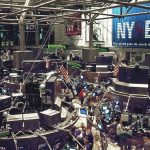Investing well is hard enough, and introducing your personal values into the mix only compounds the confusion.
What matters most? How can I have the biggest impact? And am I a traitor to myself if I own stocks in companies I would otherwise shun?
Consider just one issue that inspires deep feelings: animal welfare. It is one of the newest niches that socially responsible investment companies seek to serve, and it offers a useful template for the kinds of questions that all of us need to ask if we want to craft a portfolio that points the same way as our moral compass.
There are two noteworthy examples of how one can attempt this.
First, the US Vegan Climate ETF. It is an index of sorts, with 268 American stocks, and it begins with subtraction: removing companies, and even whole industries, that it considers animal unfriendly. Pharmaceuticals? Poof, because of all the animal testing. Companies that extract and refine fossil fuels are gone, too. After all, animals are outdoors more than we tend to be, so climate change threatens many of them even more than us.
The Karner Blue Animal Impact Fund, named for the endangered butterfly, takes a different approach. It is an actively managed mutual fund, with fewer than half the number of stocks in the Vegan ETF, including companies not based in the United States.
Another big difference: It employs so-called positive screening, picking best-of-breed companies in as many industries as it can stomach.
This gets tricky rather quickly, and it may mean something like the following when it comes to the raising of meat, according to Ms. Benjamin, who is not a vegan but tends to stray from a plant-based diet mostly in the piscine direction: People are going to eat animal flesh for a good long while, so why not treat the animals better?
Do that, and it becomes more expensive to raise animals, since you’re doing so humanely, which is a good thing. The cash cost of eating meat will go up, people will eat less, and emissions will fall.
That’s how Karner Blue ends up with Chipotle in its portfolio: It likes the chain’s animal welfare efforts (its continuing food safety questions aside). But the parent of Burger King didn’t make the cut, even though it has a vegetarian Whopper with an Impossible Burger patty these days. That’s because the parent, Restaurant Brands International, also owns Popeyes, which only recently agreed to take a big step to improve its treatment of chickens.
Any edge cases reflect the kinds of compromises that nearly any kind of investment may require for most consumers. Because of its desire to direct capital to above-average companies in as many industries as possible, Karner Blue sometimes ends up in a situation where it’s effectively buying the best house in a bad neighborhood.
Take retail, home to lots of chains selling lots of animal skin. Karner Blue owns H&M, because it appreciates the chain’s stance on staying away from leather that comes from animals raised on rainforest land. The fund manager is less fond of the fact that consumers don’t tend to keep the retailer’s cheap clothing for very long.
“We have a problem with the sustainability of the product,” Ms. Benjamin said. “You have to hold your nose sometimes.”
The other approach involves compromises, too.
The Vegan ETF nixes fossil fuel companies, but it still owns stock in automakers that make gas-powered vehicles with leather interiors. Here, the fund’s creator, Beyond Investing, saw an opportunity to push the car companies toward skin-free seating, given that Tesla has made that move with some models.
“We think that means others should change as well,” said Claire Smith, chief executive of Beyond Investing.
Scour her holdings and you’ll probably find something that is personally objectionable. I wouldn’t want to own Intuit, given all of the reporting from Pro Publica about how it tried to keep people from filing their income tax returns for free. Equifax also makes an appearance, which hurt my heart. We people are animals, too, after all, and Equifax treated us shabbily in the wake of its horror show of a security breach.
And what price perfection, or only modest imperfection, in pursuit of a portfolio that is as close to morally pristine as can be? New funds tend to be costly, and these two are no exception.
The Vegan ETF features a fee of 0.60 percent, which is a lot for an index fund. Let’s say you put $2,500 into an everyday index fund that requires only a 0.10 fee. And let’s also say you do that every year for 45 years and earn a 6 percent annual return. The fund with a 0.60 fee ends up with $471,456, while that lower-fee fund ends up with $547,100. That $75,644 difference is real money, and it could go a long way toward advancing any of your chosen causes.
Ms. Smith said the company had every intention of starting to reduce fees once it passed $50 million or so in assets. Right now, she said, there was about $15 million in the ETF.
Karner Blue funds can cost even more, though the exact amount depends on how much you invest and whether you’re using a financial adviser. Ms. Benjamin said investors knew what they were signing up for, including the fact that the fund’s overarching organization also features an animal welfare advocacy and research organization, a political action committee and a foundation. And, she said, the fund managers are constantly pressing company executives for changes in their animal impact policies.
As with any socially conscious investment, questions about performance always linger somewhere in the background, even though research has shown that this sort of investing need not mean sacrificing returns that match the overall stock market.
Still, the focus on animal welfare is narrow enough that it could skew the holdings in a direction that is not ideal if you care about having an allocation of financial assets that matches a prominent, diverse stock index. This is particularly true with the Vegan ETF, where you sit out whole swaths of the economy.
I asked Ms. Smith whether kindness may actually guarantee alpha — the investing industry term for performance beyond what owning any particular index fund might deliver.
She answered first by talking about the upside of the choices she is making, namely the effects of changing consumer behavior. “People are more conscious about what they purchase and the sustainability of products,” she said. That demand drives revenues, profits and so on.
A bigger concern is what could happen to her investors’ returns if Ms. Smith put their money in industries that harm animal habitats or treat them poorly.
If we eat no meat or just a lot less, what will happen to giant feedlots that publicly traded entities own far from urban centers? Quite possibly, nothing at all. “I don’t think,” she said, “that they are going to start putting luxury estates there.”
New York Times





